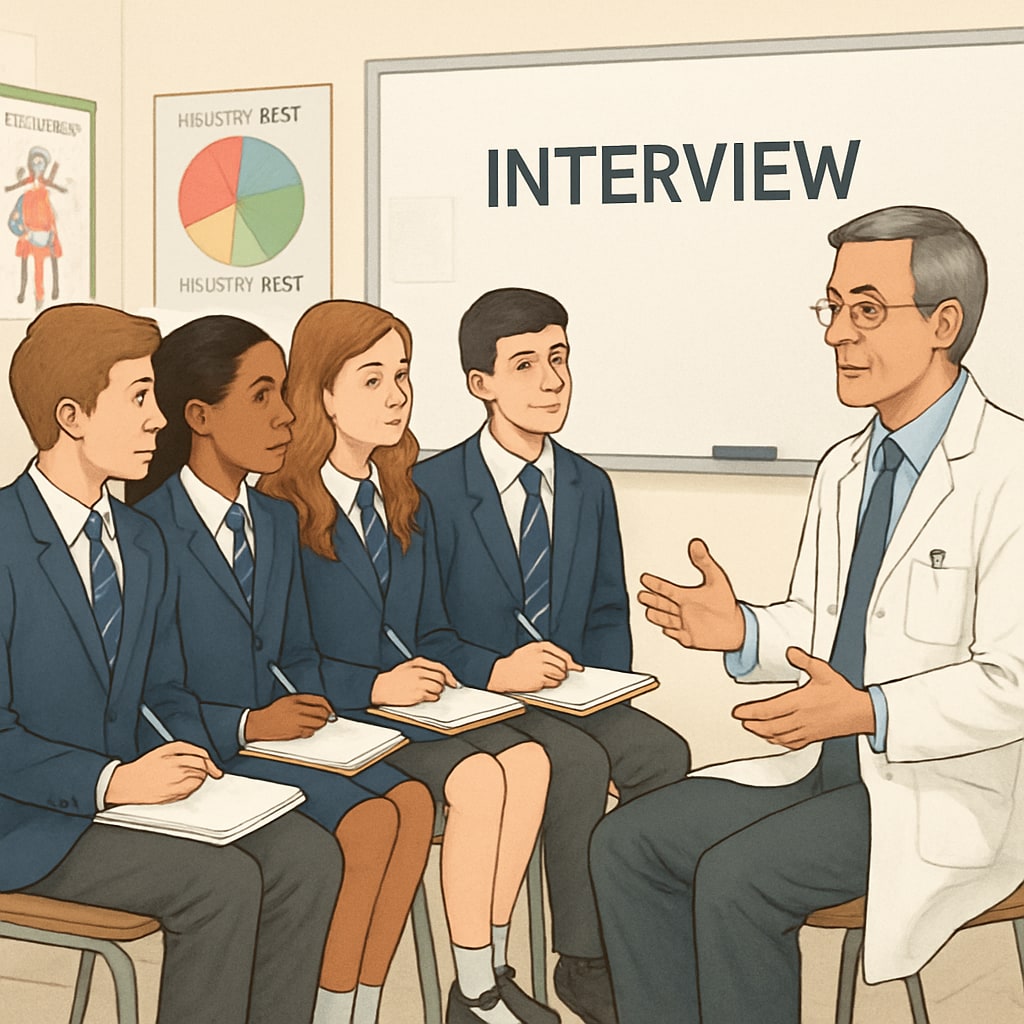Medical career exploration is a vital aspect of K12 education, as it helps students understand potential career paths and develop essential life skills. Incorporating activities like school projects that involve doctor interviews can provide valuable insights into the medical profession. These real-world interactions not only foster career awareness but also nurture students’ communication and critical thinking abilities. In this article, we will discuss the importance of such projects, outline a structured approach to design and implementation, and offer tips for guiding students in their interactions with medical professionals.
The Importance of Medical Career Exploration in Schools
Introducing students to the medical field early in their education can have a profound impact on their career choices. For many, the healthcare profession is a distant concept, characterized by stereotypes or media portrayals. By engaging directly with doctors through interview projects, students gain a realistic understanding of what the profession entails.
- Building Awareness: Students learn about the diverse roles within healthcare, from surgeons to public health specialists.
- Developing Skills: Activities like interviews improve communication, active listening, and research skills.
- Encouraging Interest: Exposure to real-world experiences can ignite a passion for medicine or other healthcare-related fields.
As a result, these projects not only help students make informed career choices but also prepare them for the demands of professional life.

Designing a Successful Doctor Interview School Project
A well-designed project ensures that students derive maximum benefit from their interactions with medical professionals. Here’s a step-by-step framework to guide educators:
- Define Objectives: Clearly outline what you want students to achieve, such as understanding medical specialties or exploring the day-to-day responsibilities of a doctor.
- Prepare Students: Provide background information about the medical field and teach students how to conduct professional interviews.
- Identify Professionals: Reach out to local hospitals, clinics, or medical associations for willing participants.
- Facilitate the Interviews: Ensure students prepare thoughtful questions and conduct the interviews in a respectful, organized manner.
- Reflect and Share: Encourage students to summarize their experiences, share insights with peers, and discuss how the project influenced their career aspirations.
By following this structured approach, educators can maximize the educational value of the project while ensuring a positive experience for both students and participating doctors.
Tips for Effective Student-Doctor Interactions
Guiding students on how to interact with healthcare professionals is crucial for the success of the project. Here are some practical tips:
- Encourage Curiosity: Students should ask open-ended questions to gain deeper insights into the profession.
- Emphasize Respect: Teach students to value the time and expertise of the professionals they are interviewing.
- Promote Reflection: After the interview, have students write a summary or present their findings to the class.
For example, students might ask, “What inspired you to become a doctor?” or “What advice would you give to someone considering a career in medicine?” Such questions encourage meaningful dialogue and provide students with valuable perspectives.

Conclusion: Inspiring the Next Generation of Medical Professionals
Incorporating medical career exploration projects into K12 education is an investment in students’ futures. By connecting students with healthcare professionals through school projects like doctor interviews, educators can spark interest in medicine, build essential career planning skills, and broaden students’ understanding of the medical field. These experiences not only benefit students academically but also prepare them for the challenges and opportunities of professional life.
As education evolves to meet the demands of the 21st century, initiatives like these will play a crucial role in shaping informed, motivated, and capable individuals who are ready to contribute to the world of healthcare and beyond.
Readability guidance: Use short paragraphs and lists to summarize key points; ensure active voice dominates; maintain a balance of transitional phrases throughout. Break up text with appropriate images and ensure all sections connect seamlessly.


